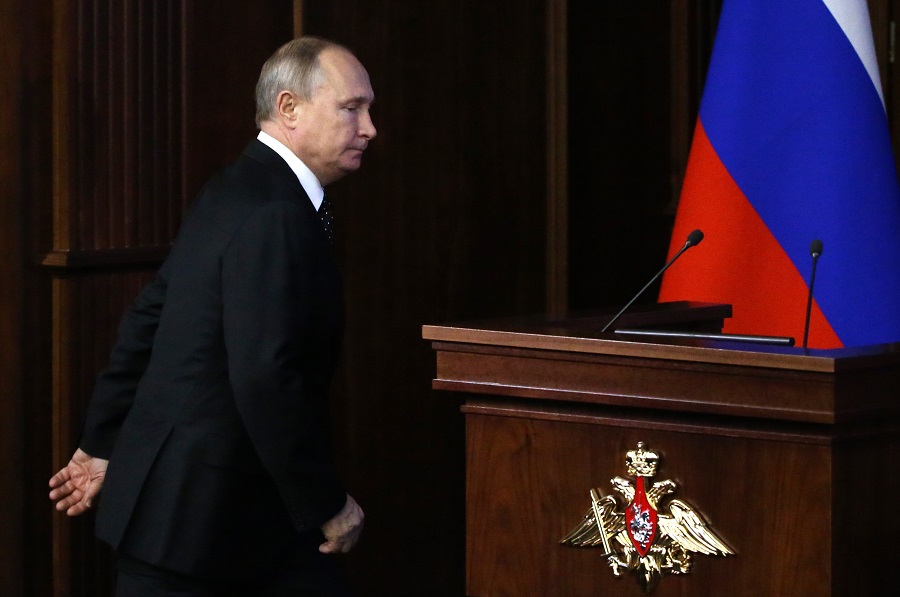Russia will strengthen its strategic nuke forces if US leaves INF treaty


Russia has said it would resume mid-range missile development if the United States leaves a major arms control agreement the two signed in 1987.
Russian President Vladimir Putin vowed on Tuesday that his country would develop the missiles if the US leaves the Intermediate-Range Nuclear Forces Treaty.
Tensions have raged over the fate of the INF treaty, with US President Donald Trump promising to walk away from the deal in October and Putin threatening a new arms race.
Washington said it would withdraw from the INF within 60 days if Russia did not dismantle missiles that the US claims breach the deal.
Signed by then-US president Ronald Reagan and Soviet leader Mikhail Gorbachev, the treaty bans ground-launched missiles with a range from 500 to 5,500 kilometers.
A 60-day grace period-granted by the US as a concession to European partners-on the issue will expire in mid-February, and the European Union has urged Russia and the US to save the deal.
Russia's strategic nuclear forces have grown significantly stronger and it is necessary to further strengthen the potential of the country's strategic nuclear forces next year, said Putin in a defense ministry meeting.
"The nuclear triad, which plays a key role in maintaining global parity, has been noticeably strengthened with the share of modern weapons in it already reaching 82 percent," Putin said.
A nuclear triad is a three-pronged military force structure that consists of land-launched nuclear missiles, nuclear-missile-armed submarines and strategic aircraft with nuclear bombs and missiles.
Putin said that serious, breakthrough steps have been taken in the development of the newest and unparalleled weapons this year, including the start of the serial production of the Avangard scramjet glide vehicle, successful testing of the Sarmat missiles, test-alert duty of the hypersonic Kinzhal (Dagger) air-launched ballistic missile and of the Peresvet combat laser systems.
According to Putin, these weapons increase several times the potential of the armed forces and will reliably ensure the security of Russia in the coming decades.
Vasily Kashin, a Russian military expert, said ground-based intermediate-range missiles were cheaper, so Russia could place more of them in range of European targets
He added that Moscow still wanted to keep the treaty to protect itself against a possible attack.
































